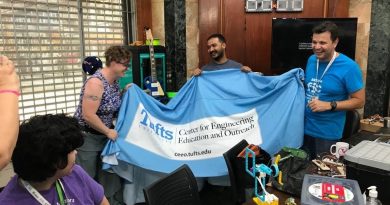RBAC Hacks SmartMotors and more in Boston, Summer 2022
The Power of In-Person Collaboration
What started as an idea to bring a few Tech and Play colleagues to the CEEO to collaborate on SmartMotor designs ended up blossoming into a huge endeavor to bring 10 of our friends and partners from RBAC and two different Brazilian universities (the Federal University of São João del-Rei and the Federal Institute of Rio Grande do Sul) for a two week adventure in the greater Boston area, complete with special visits to our fellow specialist partners at the MIT Lifelong Kindergarten (LLK) and Scratch Foundation.

During their stay, the RBAC supergroup experienced our CEEO summer undergraduate hackathons, our Malden Community garden project, Tufts University fab labs and makerspaces, the Boston Museum of Science, various high school and elementary level CEEO workshops, a field trip to see autonomous vehicles, and even a few musical performances. This cross-cultural engagement allowed for so much learning among all participants, and deeply strengthened personal and professional relationships in ways that simple zoom calls just can’t compare. In two weeks of working together, RBAC and CEEO advanced our collaborative projects lightyears ahead of what had been achieved so far.
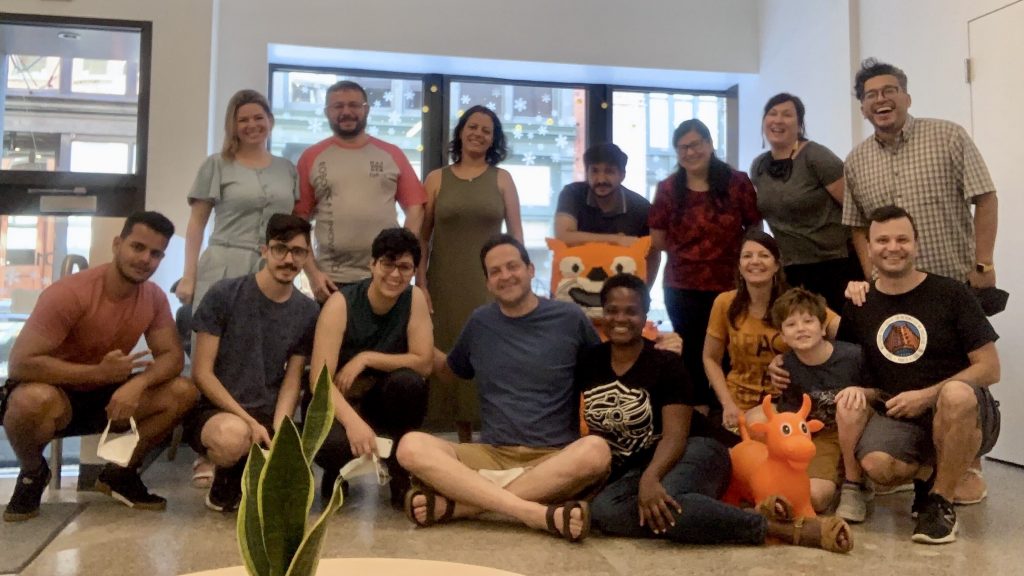
SmartMotors
The main goal of the SmartMotor project in Tech and Play is to make robotics as widely accessible as possible — meaning the device itself should be able to be sourced, created, and used locally, for the lowest possible cost, and be able to be used without accompanying computers or a wifi connection. As the main theme for the RBAC visit, this collaboration yielded multiple advances and several new models of SmartMotor shields — boards that can be easily plugged on top of an Arduino or Raspberry Pi to create an “instant SmartMotor”.
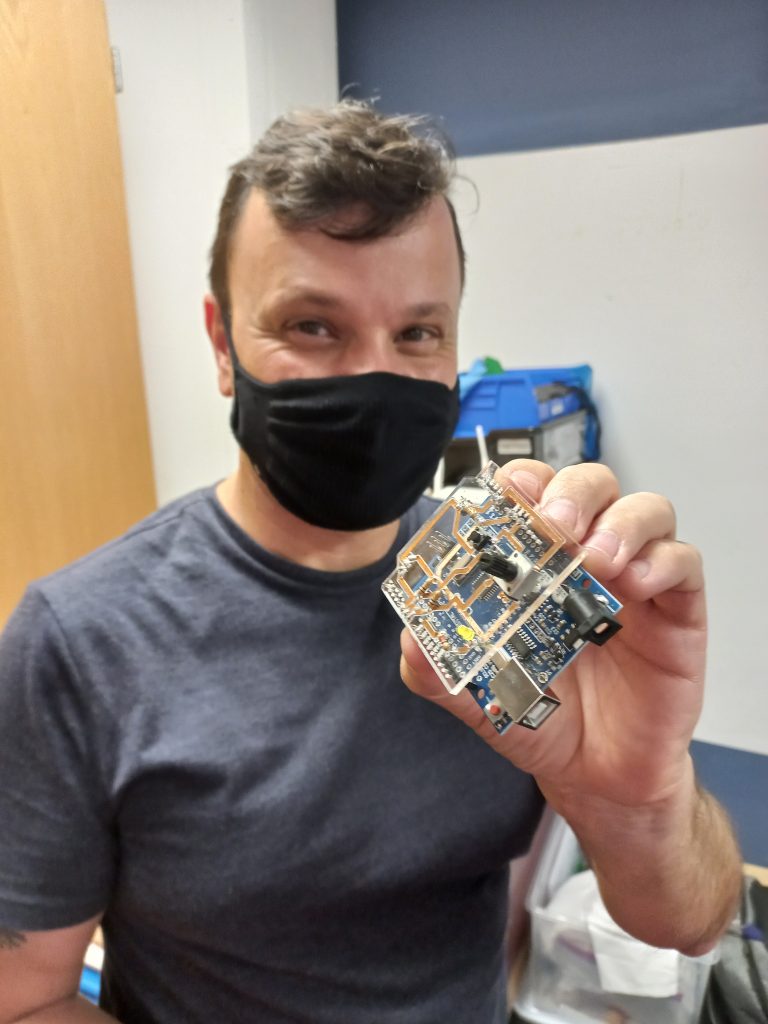
These shields are a type of PCB (Printed Circuit Board). Anyone can recognize an industrially-made PCB by its characteristic green color and professionally soldered electrical components. It is possible to design your own PCB with certain software, but then the next step of DIY boards is usually to send the design off to a manufacturer to actually make them for you. The most exciting thing about these new shields is that they can be made in-house with easily accessible materials (acrylic or MDF board, and copper tape) using nothing but relatively cheap tabletop makerspace tools. During their two week stay, professors and students designed, printed, and wired multiple SmartMotor shields, even using a wire-wrapping technique that avoids the need for soldering electrical components together.

These methods for SmartMotor PCB creation are proving that with just a few materials, a paper cutter, and a tabletop CNC machine, a modest makerspace anywhere in the world could start to produce their own SmartMotors for local classrooms! In fact, some schools and educators could potentially make their own SmartMotors — adding fabrication and construction to the growing list of thing you can do with a SmartMotor!
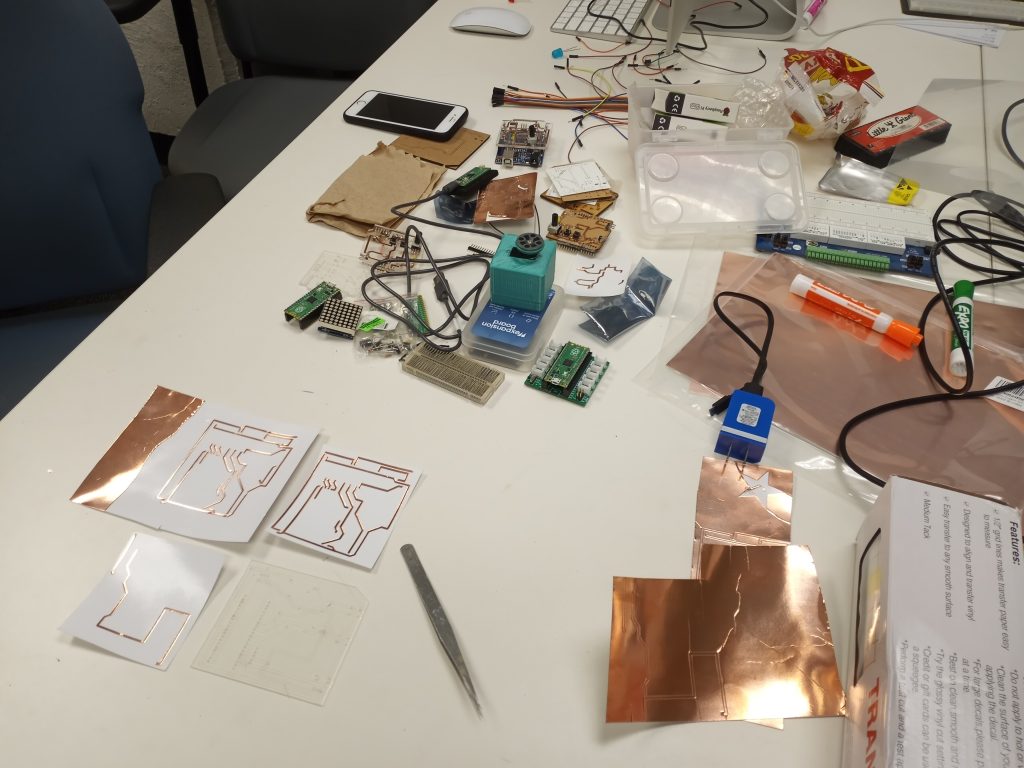
Sharing Experiences
One of the greatest advantages of in-person collaboration is the ability to fully experience your colleagues’ workspaces. Where and how do we teach, learn, create, and play? Here at Tufts, our RBAC friends got visit our makerspaces and fab labs while students were engaged in various workshops and hackathons, getting to see firsthand how we organized our equipment and workspaces, how we engage our mentors and teaching assistants, and how we utilize our time spent on projects. Visitors asked questions, engaged directly with students, and had the opportunity to share their own insights into the similarities and differences between these kinds of places and events in Brazil and the US. These conversations, while sparked in-person, are now continuing online as educators and students from all locations build upon each others’ observations and ideas.
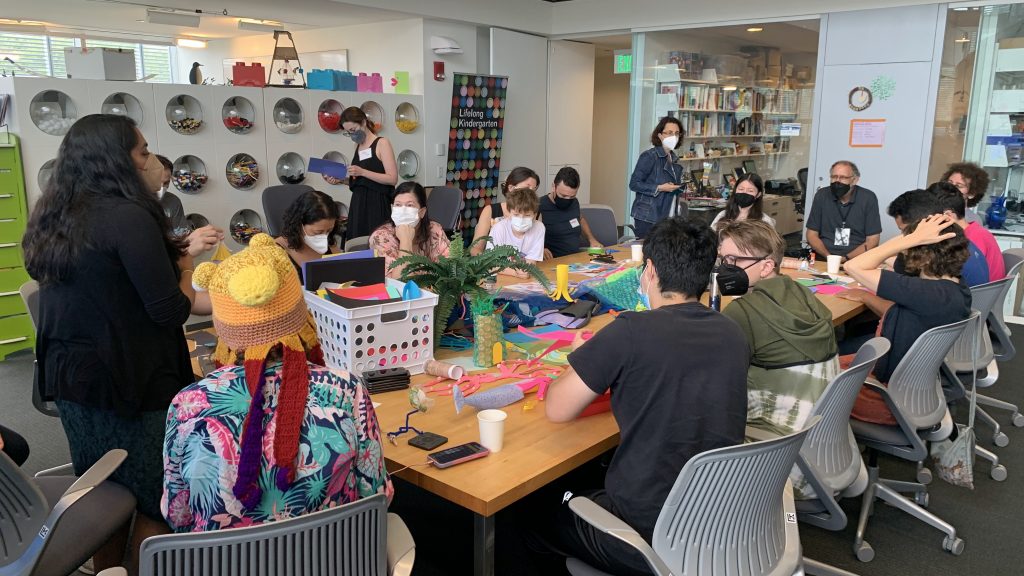
The opportunity for sharing experiences also lead to more collaboration between Tufts CEEO and MIT LLK, as we attended some of each others’ events for our Brazilian guests. Most notable was the immersive experience at the MIT Media Lab regarding Octoplay — a new, playful app that members of RBAC and Tufts CEEO were able to explore together and brainstorm on how it could be used in our respective settings.
Learnings
The team from RBAC is still compiling all of their experiences, ideas, and learnings from last month’s Boston adventure. Each event brought with it new illuminations that will impact teaching and learning at their respective institutions. The events of this visit have supercharged our Tech and Play work, putting in motion all kinds of progress in SmartMotors, Novel Engineering, and workshop creation.
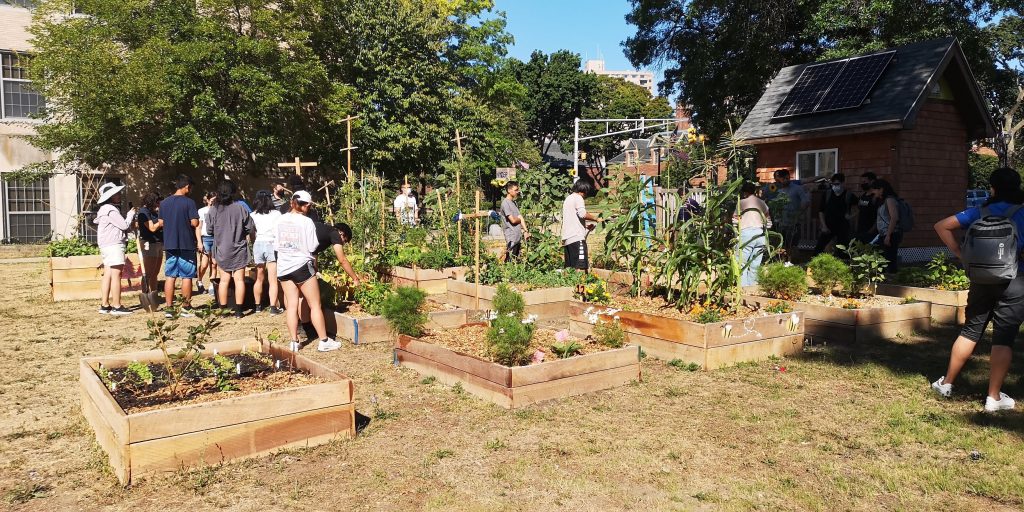
Again, these kinds of learnings are not easily accomplished over a video chat. For example, visiting our makerspaces impressed upon the group the importance of building a mentoring culture in a fab lab or workspace, having senior students be mentored by professors while also guiding new students. Visiting MIT Media Lab allowed for an excellent and frank discussion about Learning Creative Learning and what it means to be a facilitator. Seeing our workshop leaders utilize learning rubrics make their use far more accessible. One visitor remarked, “The use of rubrics is something that we’ve been working on and seeing the team at Tufts develop the same is certainly another strength of collaboration that will have a direct impact on the way teachers work.”
Next Steps
Back home in Brazil, our colleagues are already making progress on continuing the discussions and work that was started here with us. Teams at both Brazilian universities are making more progress with their DIY SmartMotor fabrication. Discussions about implementing Novel Engineering into Brazilian STEAM workshops that may also employ Scratch and Octoplay are afoot. Organizational and managerial practices around makerspaces are already being put into place. Some of our colleagues are also working on reproducing some of the exciting projects our summer interns shared with them. Our Malden High School community garden team is being put in touch with educators in Brazil who want to learn how to facilitate similar projects. This good work is spreading!
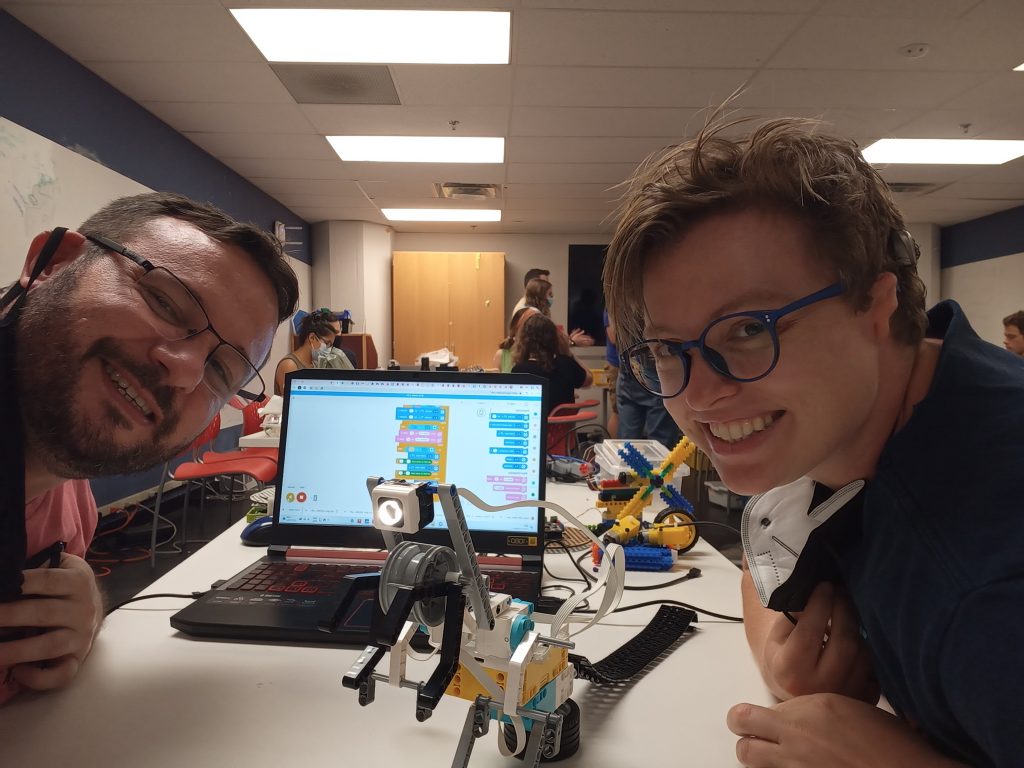
and a drive to keep collaborating.
The future is bright for continued work between RBAC and Tufts CEEO. What was started here will have far-reaching effects on playful STEAM learning in Brazil, the US, and beyond.



